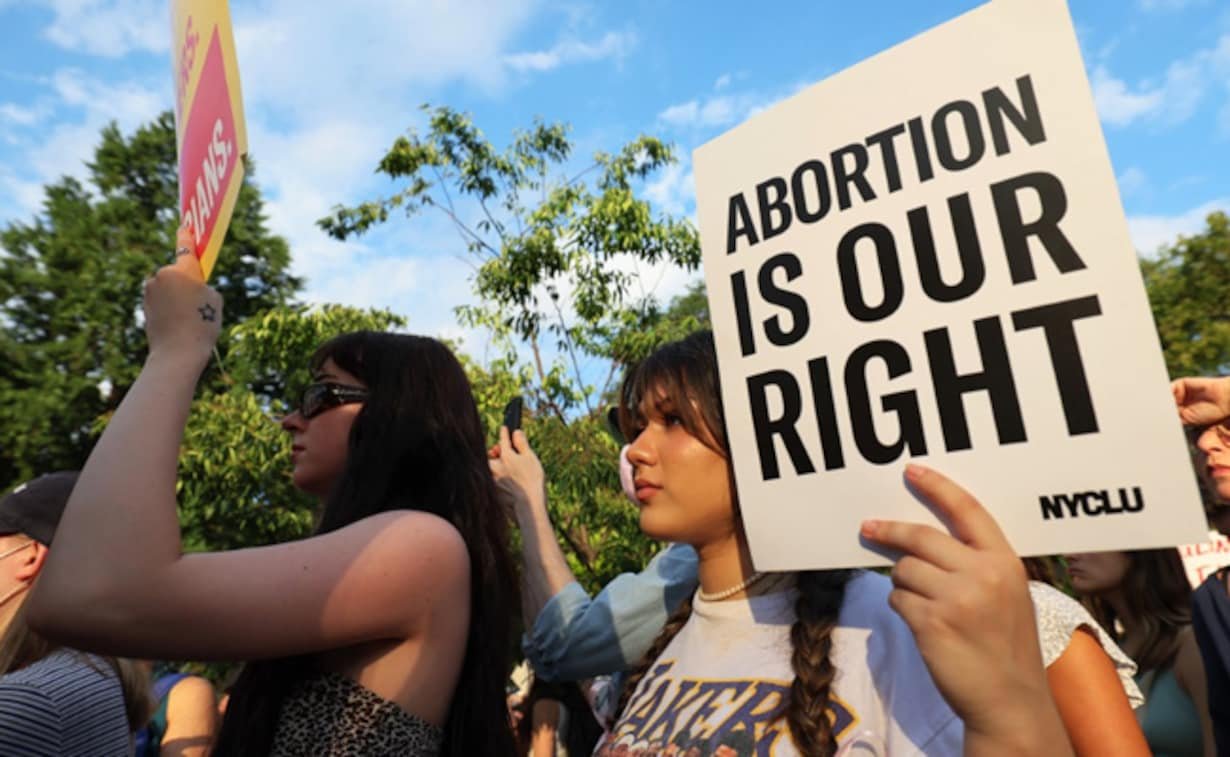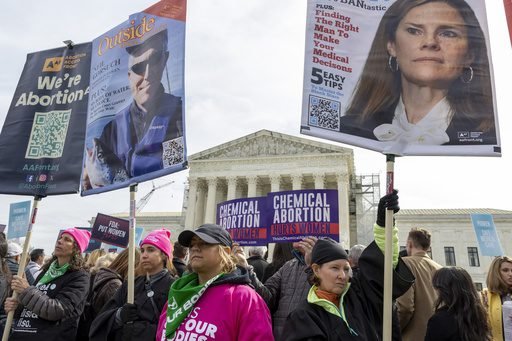Unveiling the Persistent Influence of Abortion on US Politics: Insights into the Continuing Debate
Two years after a fundamental form of a U.S. High Court choice indicated a huge change in the country’s fetus removal scene, the issue keeps on overwhelming courts, regulative lobbies, and political fields, significantly influencing lives.
Late advancements outline the continuous disturbance. Florida has ordered a regulation prohibiting fetus removal after only six weeks of pregnancy, a period frequently going before ladies’ familiarity with their condition. These reverberations comparable regulation in two different states. In a differentiating move, Arizona officials cast a ballot to cancel a total fetus removal boycott tracing all the way back to 1864, originating before Arizona’s statehood. The lead representative speedily marked the nullification into regulation. Moreover, Kansas lawmakers have designated expanded subsidizing for hostile to fetus removal focuses this week. Advocates in South Dakota have accumulated an adequate number of marks for a polling form measure pointed toward revering early termination privileges in the state constitution.
Fetus removal regulations have been in a consistent condition of motion the country over, with legislators passing new measures and courts mediating difficulties to them. As of now, 14 states have carried out restrictions on fetus removal all through all phases of pregnancy, though with restricted exemptions. On the other hand, most states under Just authority have sought after measures to maintain or extend admittance to early termination administrations.

David Cohen, a teacher at the Thomas R. Kline School of Regulation at Drexel College gaining practical experience in fetus removal strategy, commented on the turns of events: “A portion of these progressions were expected, yet others have surprised the two sides, essentially testing the counter early termination development.”
Since the upsetting of Roe v. Swim by the High Court in June 2022, more than 20 states have executed different levels of fetus removal boycotts. Shockingly, notwithstanding these limitations, studies show that the quantity of month to month fetus removals cross-country has stayed consistent or even expanded contrasted with pre-Roe levels. Citizens, whenever offered the chance to voice their position on the issue through seven statewide polling form measures, have reliably preferred positions lined up with fetus removal privileges advocates.
The authority arrival of the High Court’s decision in the Dobbs v. Jackson Ladies’ Wellbeing Association case on June 24, 2022, denoted a huge defining moment, successfully invalidating almost fifty years of cross-country lawful fetus removal. Be that as it may, the general population got a brief look at the looming choice around a month and a half prior, on May 2, when a media source released a draft of the decision.
Stephen Billy, VP of state undertakings for Susan B. Anthony Favourable to Life America, communicated fulfilment with the Dobbs choice, stressing that it currently permits the desire of individuals to win. He censured fetus removal freedoms allies for purportedly making disarray around clear regulations, especially with respect to statements that the boycotts disallow early termination even in health related crises. Billy blamed them for cultivating political conflict to propel their strategy plan.
The spilled draft of the High Court assessment matched with a significant second in Amanda Zurawski’s life. At the hour of its distribution by Politico, Zurawski was going through ripeness treatment and was only weeks from finding her pregnancy. However consistently strong of fetus removal privileges, she hadn’t expected an immediate effect on her life. Be that as it may, months after the fact, she confronted a frightening difficulty when denied a fetus removal in spite of encountering an untimely break of layers, a condition with possibly dangerous confusions. Consequently determined to have sepsis, Zurawski confronted a brush with death, and her little girl, Willow, was at last cut short because of the deferral.
Amanda Zurawski’s extraordinary excursion from confident new mother to enthusiastic dissident highlights the significant effect of individual encounters on activism. “I imagined myself as another mother with an infant,” she partook in a meeting, considering her assumptions. “All things being equal, I wound up in Tallahassee, Florida, meeting the VP.”
Following her awful difficulty, Zurawski turned out to be profoundly associated with promotion endeavours. She turned into an offended party in a legitimate test pointed toward explaining Texas early termination regulations, affirmed about her experience before Congress and different crowds cross-country. As of late, gone with the choice to leave her tech task to commit awhile to supporting fetus removal freedoms and President Joe Biden’s re-appointment crusade. “I’ve forever been somebody who defends equity,” she certified. “This excursion isn’t the very thing that I expected.”
Zurawski’s story, enhanced by media inclusion, exemplifies the essential job that early termination has expected in the political field during this unstable political decision year.
In Arizona, a pivotal landmark express, the state High Court’s new decision permitted the implementation of a close all out early termination boycott tracing all the way back to 1864, following the upsetting of Roe v. Swim. This choice prodded serious discussion, at last bringing about a proposition to nullify the boycott, which was passed by the state House and Senate. Majority rule Lead representative Katie Hobbs marked the cancellation, albeit the 1864 regulation is supposed to stay as a result for quite a while.
In November, Florida, Maryland, and New York will highlight estimates on the voting form pointed toward shielding early termination access. Nikki Seared, seat of the Florida Leftist alliance, communicated worries about the possible repercussions of limited admittance to medical care for ladies. “Ladies might end up in unthinkable circumstances, denied of fundamental medical services, whether in crises or family arranging,” she cautioned. “Floridians currently have the amazing chance to recover control.”
Stephen Billy of Susan B. Anthony Supportive of Life America underlined his gathering’s obligation to obstructing voting form drives in Florida and different states pointed toward turning around existing fetus removal boycotts. In Arizona and undoubtedly seven different states, comparable endeavours are in progress. A few states are likewise considering measures to implant these boycotts into their state constitutions.
The early termination issue poses a potential threat in the official political race field. President Joe Biden has been vocally reprimanding his probable adversary, previous President Donald Trump, for naming High Court judges whose choices impacted the result of Roe v. Swim. VP Kamala Harris made an outing to Florida to censure the as of late spent six-week early termination boycott in the state, which is the third most crowded in the country.
Trump, who recently expressed his conviction that early termination regulations ought not entirely settle by individual states, took a more forceful position this week. In a meeting with Time magazine, he proposed that states ought to have the power to arraign ladies who look for early terminations. In any case, recommendations to establish such measures presently can’t seem to build up forward momentum in any state assemblies.
Subscribe To Our Channel :- YouTube, Daily News Country, Face book

